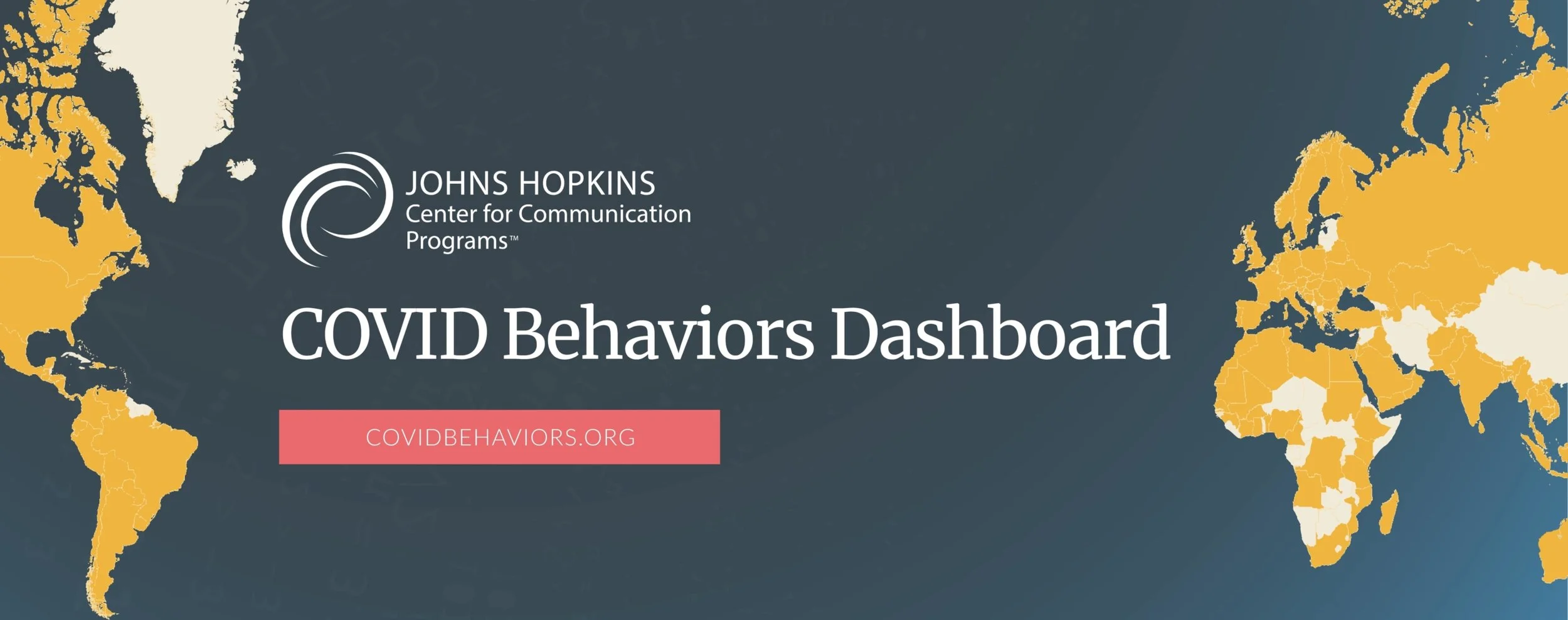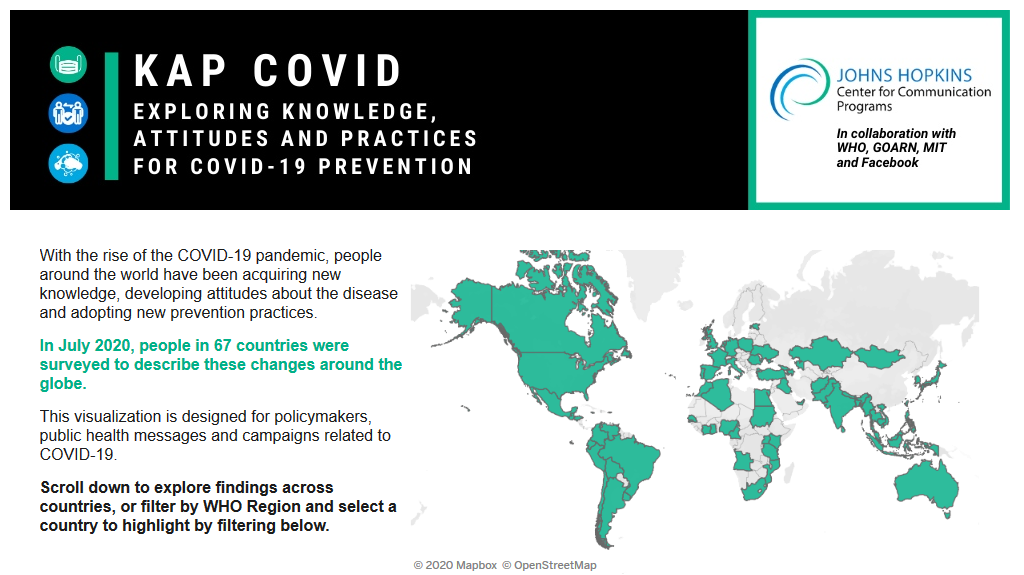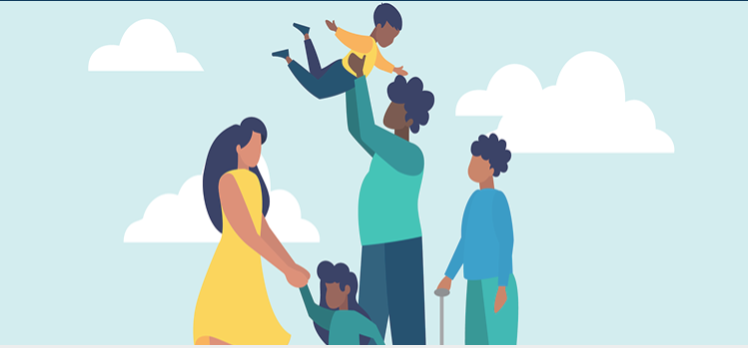Data Dissemination &
Serious Game Development
COVID Behaviors Dashboard
The COVID Behaviors Dashboard visualized data at both the national and subnational levels in 115 countries, collected from August 16, 2021 to June 25, 2022 through the COVID-19 Trends and Impact Survey, a global daily survey of Facebook users (+60 million responses) implemented by the Delphi Group at Carnegie Mellon University and the University of Maryland Social Data Science Center in partnership with Meta. The COVID Behaviors Dashboard was retired in June 2024, however data requests for the United States can be made on the Delphi Group at Carnegie Mellon University website and for all other countries on the University of Maryland Social Data Science Center’s website.
KAP COVID Dashboard
Johns Hopkins Center for Communication Programs’ KAP COVID dashboard presents data from a global survey of knowledge, attitudes and practices around COVID-19. The data were collected from more than 300,000 people in 67 countries who chose to participate in a survey promoted on Facebook. Researchers from MIT collected the data and Johns Hopkins CCP analyzed and presented the data on an easy-to-use COVID dashboards.
The Dot Study
The Dot Study assessed the contraceptive effectiveness of the Dot fertility app in a prospective trial with over 700 U.S. women. Over 13 cycles, Dot showed a typical-use efficacy of 94% and a perfect-use efficacy of 98%. The study also demonstrated how agile development improved recruitment and retention in mHealth research. As one of the few rigorous trials of app-based contraception, the study offers strong evidence that digital fertility awareness methods can be both effective and scalable.
Results Paper1; Results Paper 2; Enrollment Paper; Press Release.
Nari Paila (Mobile Phone Games)
Mobile phone games that educated adolescents on reproductive health topics in Nepalese and English. Prior to the mobile version, our team had conducted human centered design activities and community engagement work across Nepal. This work resulted in Pragati, a series of games implemented by community health workers, schoolteachers, and other individuals working with women and young people. The goal was to normalize conversations about reproductive health, including menstruation and contraception. Nari Paila was a pilot project we launched in collaboration with the technology company GRID, promoted on TikTok, and resulted in more than 20,000 downloads in 3 months. The games were originally published on the Google Play Store, the Apple Store, and the Microsoft Store in 2019.
Male Engagement Compendium
Involving men and boys in family planning (FP) and sexual and reproductive health (SRH) benefits them personally and positively impacts their partners, families, and communities. Research indicates that participation in FP/SRH programs by men and boys can lead to fewer unintended pregnancies, better maternal health, a reduction in sexually transmitted infections like HIV, and progress toward gender equality. The Male Engagement Compendium is a resource for program implementers, researchers, policymakers, and government officials to advance their knowledge through accessing tools and resources that will improve the engagement of men and boys, reinforcing key components from the Know, Care, Do Theory of Change.




